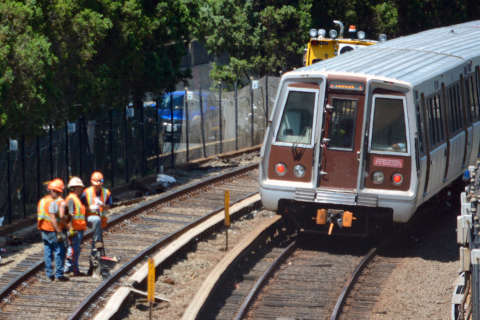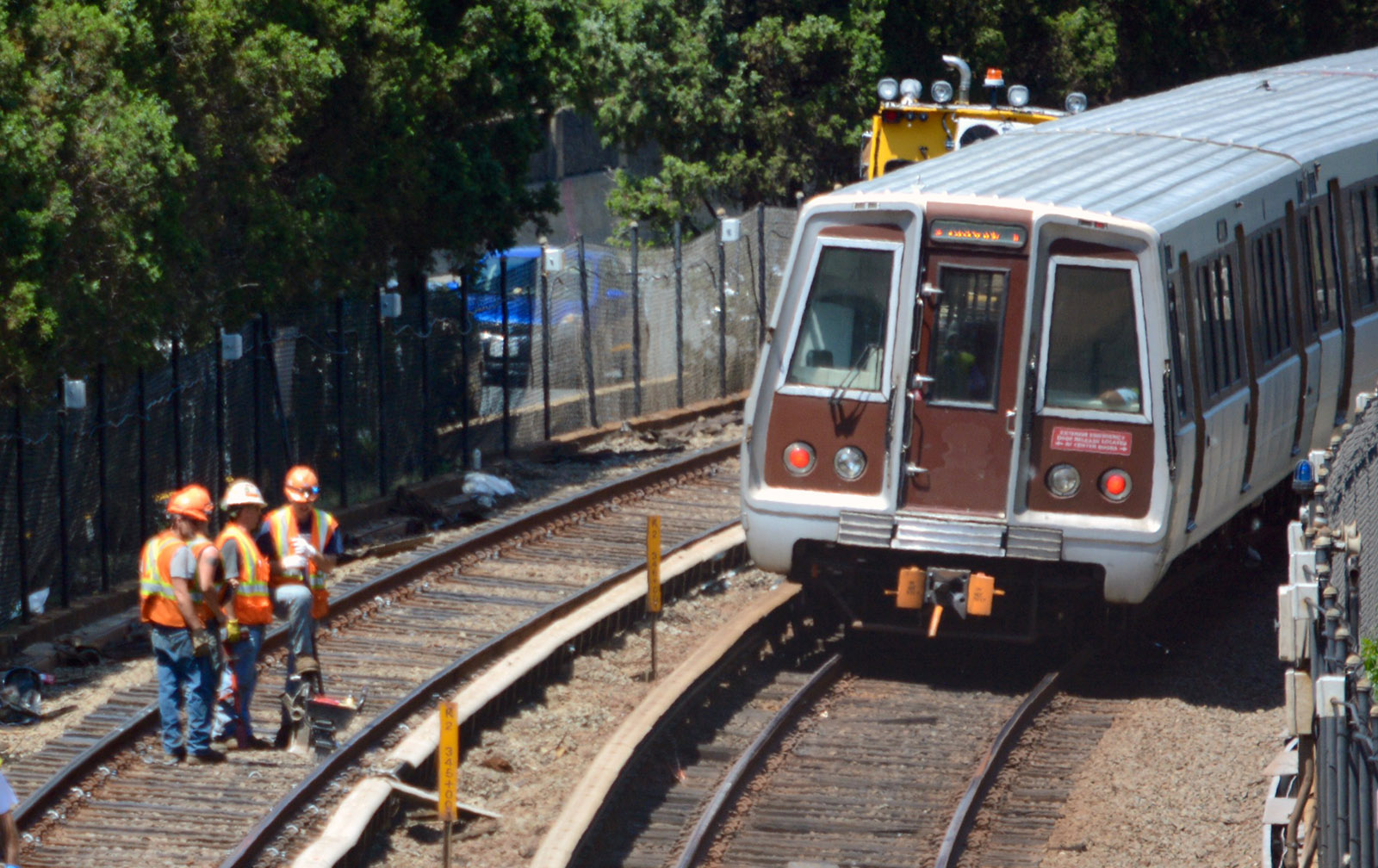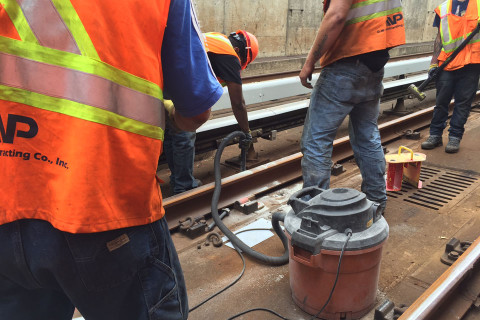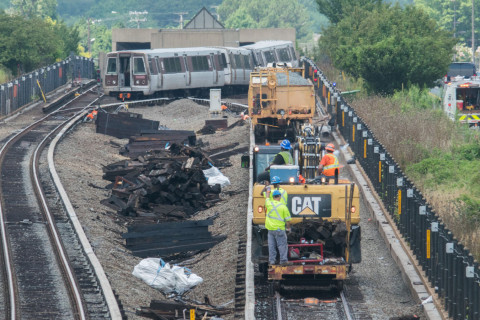
ALEXANDRIA, Va. — A year after more than a dozen Metro track inspectors were fired or suspended over what Metro called falsified inspection reports, those workers are still fighting to get their jobs back and it could be months before their cases are decided by arbitration panels.
Lawyers for Metro and the Amalgamated Transit Union Local 689 were in a federal courtroom in Alexandria Friday asking U.S. District Court Judge Liam O’Grady to rule on whether some or all grievances tied to the firings could be argued as a group, as the union hopes.
This was the first mass firing in Metro history, union lawyer Douglas Taylor told O’Grady.
Documents in the case before the court, connected to an arbitration hearing over the firings that had been set to begin last month, reveal additional details about the firings and the workers’ complaints.
At least 15 arbitration panels are scheduled between now and June for the track workers accused of falsifying reports, and O’Grady promised a ruling “real soon” on whether group grievances would be permitted.
The discipline was handed down after a derailment near the East Falls Church Station.
John Evans, whose hearing was set for December before the brief detour into federal court, was fired last January for what Metro later described to a top union leader as an egregious failure “to properly inspect and measure switches on six separate occasions between December 2015 and May 2016 and falsifying inspection reports thereto.”
Evans challenged his firing the following day.
Evans said he had insufficient training, including just a few hours about how to use Metro’s digital track inspection reporting system and only one day of training on how to inspects switches.
On a grievance form, Evans said he could not have accessed previous inspection reports to copy them and that he never falsified documents.
“WMATA never showed proof of accurate measurement that would prove my work inaccurate or that my documents were falsified,” he wrote.
“The reports filed were prepared consistently with the practice, understanding and training given to the Track Walkers,” said an attachment to the grievance filed on behalf of several of the fired or suspended workers.
“WMATA is scapegoating these workers for insufficient track inspection which was intentionally designed by WMATA so as to avoid speed restrictions and immediate repair costs … which might disrupt rail operation,” the group grievance said.
Metro said it provided documentation to the union supporting the firings, and disputed any suggestion agency management had discouraged safety-related speed restrictions or repairs.
Instead, in a court filing this week, Metro accused Evans of directly contributing to create “a culture of noncompliance and complacency at WMATA.”
“This case is not simply a matter of poor performance, but a clear and gross neglect of duties that jeopardized the safety of Metrorail passengers and the overall operating integrity of WMATA,” General Superintendent of Track and Structures Michael Davis wrote on April 3 as the grievance process moved toward arbitration.
In this case, Evans was accused of being part of an inspection crew that duplicated reports on the switches where trains can cross from one track to another on the Red Line at Judiciary Square and Fort Totten.
Davis disputed union claims that track inspection policies were designed to avoid speed restrictions and immediate repair costs.
“Mr. Evans’ clear and gross neglect of his duties compromised public safety and constituted an irreparable breach of trust,” Davis wrote.
The measurements on a number of switch inspection forms appeared to have been copied month after month, possibly for years — Metro discovered the copied measurements through an investigation by consultants, who were hired after a train slipped off the tracks near East Falls Church in late July 2016. The consultant’s probe revealed systemic problems.
The initial audit, completed in late November 2016, found multiple problems with switch inspection reports on the Silver Line in April and May of that year including a finding that the inspections could not possibly have been properly completed at the times recorded on official reports.
That prompted an additional, internal investigation focused on the workers who were part of those specific inspection crews. That led to a broader investigation of other inspection reports by early December 2016, Davis said.
If crews had actually inspected the switches properly, Metro said, the reports would have varied slightly from month to month due to routine wear and tear. Instead, data appeared copied from one report to another with no changes to notes or comments.
“The evidence, however, revealed that the work was not completed in accordance with the governing switch inspection procedures and that the results were either fabricated or falsified,” Davis wrote.
Among other arguments against the firings, the union argues Metro acted too late under discipline rules. The rules require any discipline within 20 business days from the date a supervisor learns of the issue.
Metro believes the clock started for Evans with the December 2016 investigation, while the union has argued it began when each inspection report at issue was submitted.
In the arbitration proceedings, the union also argued that Metro’s discipline and firing of much of the track inspection department made Metro less safe, “jeopardizing passengers and other WMATA employees,” because the people now tasked with inspections have less experience.
Metro lawyers flatly denied those claims.








